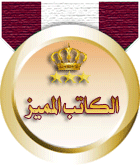 منتديات الشاعر لطفي الياسيني لطفي الياسني ،منتدى لطفي الياسيني شاعر المقاومة الفلسطينية |
  |
| المواضيع الأخيرة |
أختر لغة المنتدى من هنا
|
| ||
| » Islamic State’ executes 20 opponents in northern Iraq Mar. 10, 2015 ‘Islamic State’ executes 20 opponents in northern Iraq Killings of men, who wanted to join anti-IS paramilitary forces known as Popular Mobilisation units, take place in town of Hawij » Jan. 17, 2015 France warns citizens to stay indoors as violent protests spread in Niger » In Iraq, Struggles Over Power And Control Of The Chaldean Catholic Church's Resources And Identity; Iraq's Interim President Sides With Patriarch Sako's Rivals August 23, 2023 | By N. Mozes* Iraq | Inquiry & Analysis Series No. 1712 Introduction Althou » Feb. 12, 2016 Iraq says moving troops, preparing offensive to retake Mosul An Iraqi soldier launches a rocket-propelled grenade towards Islamic State militants, west of Falluja, February 4, 2016. BAGHDAD: Iraq's military said on Frida » Jul. 15, 2015 Sixty Britons killed after joining Isil fighters in Syria and Iraq Exclusive: Dozens of British jihadis have been killed after travelling to Syria and Iraq to fight with Islamic State Abu Hujama al-Britani, Ifthekar Jam |





 المشاركات
المشاركات نقاط
نقاط التقييم
التقييم










